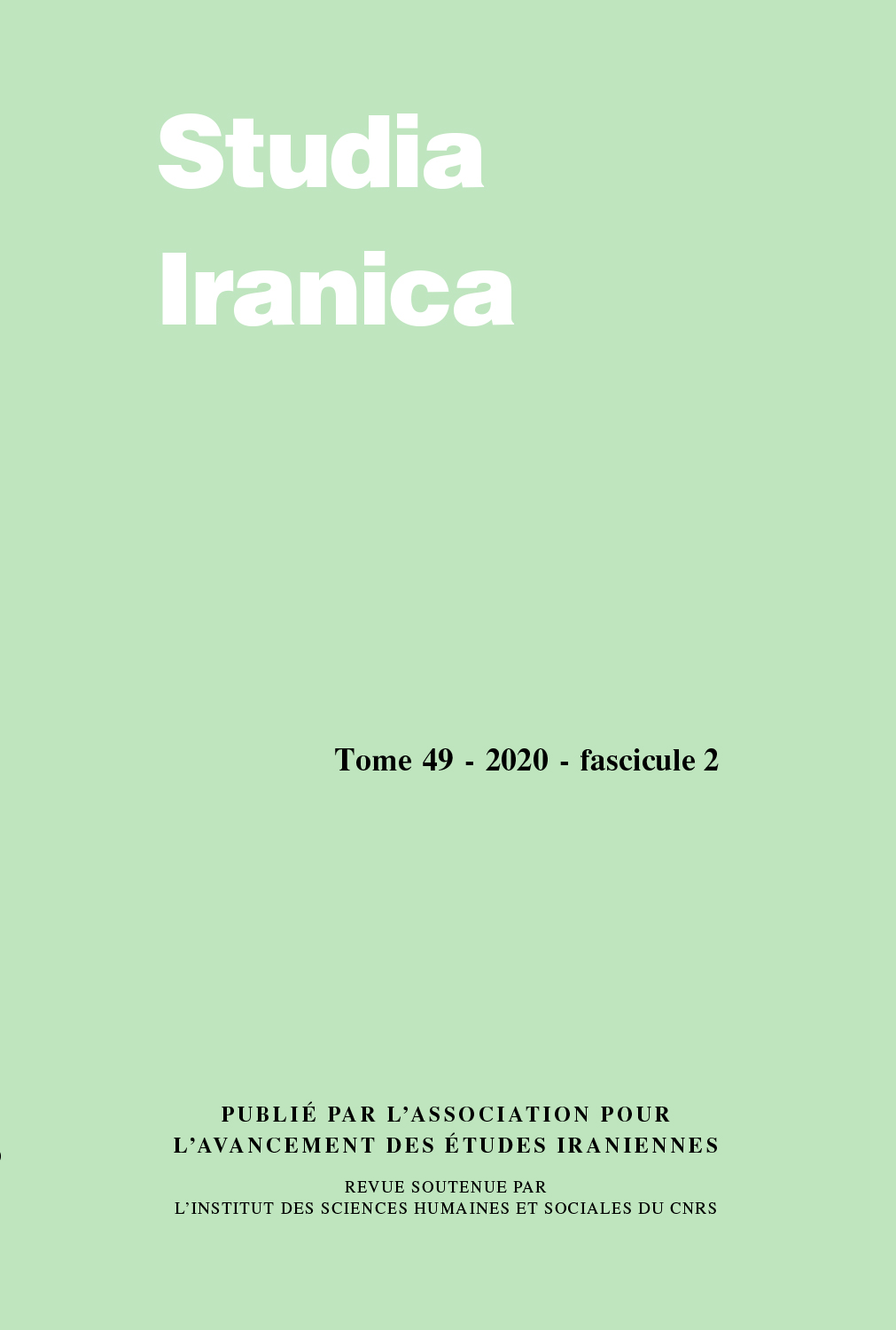 previous article in this issue previous article in this issue | next article in this issue  |

Preview first page |
Document Details : Title: Quelques remarques sur deux mots iraniens Subtitle: 1. Vieux-perse azdā et mots apparentés, 2. Moyen-perse ayāb 'ou' Author(s): HUYSE, Ph. Journal: Studia Iranica Volume: 27 Issue: 1 Date: 1998 Pages: 31-40 DOI: 10.2143/SI.27.1.2003934 Abstract : 1. Le mot v.-p. azdā (DB I 31f.; DNa 43. 45; DNb 50f.) est d'ordinaire interprété comme un substantif signifiant 'annonce, message'; les données araméennes (où 'zd' dans Dan. 2.5 et 2.8f est stat. absol. d'un adjectif féminin) et sogdiennes (où sogd. '(y)zt' se comprend comme instr. sg. de l'adjectif prédicatif en emploi adverbiel) montrent qu'il s'agit plutôt d'un signifiant 'public, connu'. 2. La particule disjonctive m.-p. ayāb 'ou' semble remonter à iran. anc. *haya vā api 'ou lequel aussi' et à son contre-part sémantique en toch. A kus pat nu. En vieux-perse des phrases telles que DB 4.68f. ont pu servir comme point de départ pour cette expression finalement univerbisé. 1. The word OPers. azdā (DB I 31f.; DNa 43. 45; DNb 50f.) is usually interpreted as a substantive meaning 'news, message'; the Aramaic (where 'zd' in Dan. 2.5 and 2.8f. is stat. absol. of a feminine adjective) and Sogdian evidence (where sogd. '(y)zd' should be understood as an instr. sg. of a predicative adjective in adverbial use) show that it is rather an adjective meaning 'public, known'. 2. The disjunctive particle MPers. ayāb 'or' seems to have its origin in OIran. *haya vā api 'or who also' and has its semantic counterpart in Toch. A kus pat nu. The word may have evolved from such OPers. phrases like DB 4.68f. |
|


